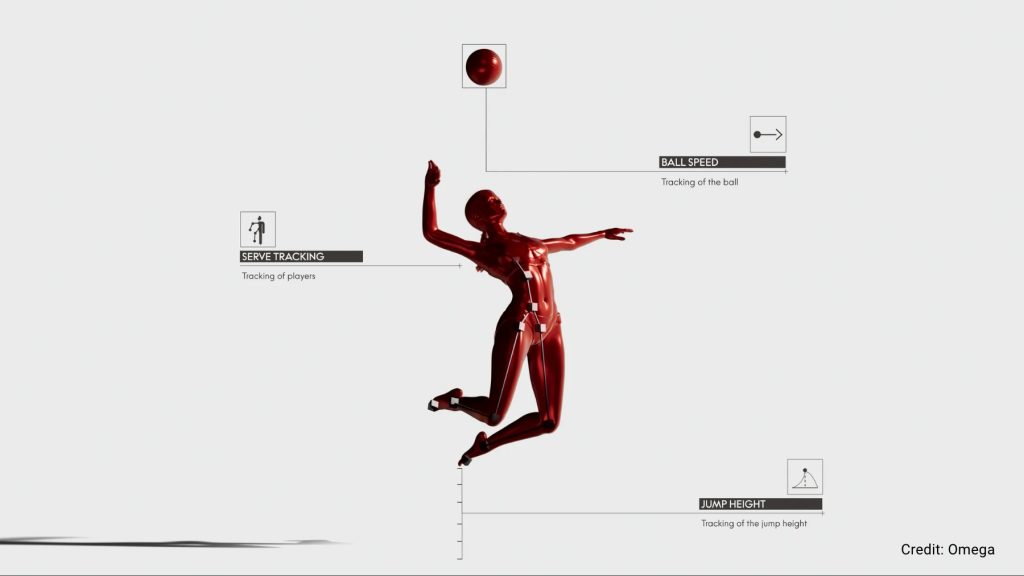
Omega, the official timekeeper for the Olympics is integrating Omega AI technologies to track athletes during the 2024 Olympics in Paris.
The Swiss company has always worked hard on developing its technologies to provide precision and fairness, as well as maintain its Swiss-quality touch in sports timing.
In 1968, Omega AI introduced touchpads, to be installed in swimming pools, which allowed swimmers to stop the clock by themselves when they reach the point, and this eliminated the errors done by humans.

Alain Zobrist, the head of Omega Swiss timings has a team of 400 employees that are mainly dedicated to timing, measuring, and tracking sports events.
Precision Targeted Technologies
One of the most recent digital advancements added is the electronic pistol. Introduced in 2024, the pistol is connected to speakers behind each contestant to make sure the start signals are heard by everyone, especially during 400 meters races.
Back in 2018, Omega also added a new technology to its watches, motion sensors, which are attached to athletes clothing to track their steps counts, speeds, acceleration, and other, providing 2,000 data points within a tenth of a second. This data is highly important for both trainers and athletes since it helps in improving and analyzing performance.
Now, for the Olympics event happening this year in Paris, Omega is integrating AI into its technologies, to analyze data in real time and generate comprehensive racial records. Zobrist stated, “AI can now analyze single performances and compare that to the others. We’re taking a picture of time, or rather what’s happening through time.”
AI VS Human Oversight
Another significant innovation is body imaging cameras. These cameras, which are part of Omega’s computer vision, can create 3D realistic images of athletes, monitoring their movements with precision.
For instance, in tennis AI can monitor the player’s interactions with the serves by evaluating the speed, racket position, and accuracy. As for gymnastics, the multi camera systems follow athletes’ spins, tumbles and rotations to assess their performance.
However, and despite the integration of AI into its watches, the Swiss company acknowledges that AI has limitations, and that human oversight remains mandatory for accuracy.
Final Thoughts
The latest advancement by Omega AI shows that although it has some limitations, AI is being used to assist people in tasks that may require precision and that might need time to be achieved.
The Olympics are a great example to show that in such big events where precision and efficiency are a must AI might not be an option but rather a need. However, it is also important to make sure that this technology will never eliminate human oversight.
Inside Telecom provides you with an extensive list of content covering all aspects of the tech industry. Keep an eye on our Intelligent Tech sections to stay informed and up-to-date with our daily articles.